Change is coming for the mining industry
Electrification of the global economy, battery metals, and ESG took center stage at the first virtual Remote Roundup 2021 North of 60 Mining News – January 29, 2021
Last updated 2/25/2021 at 3:15pm

Adobe Stock
The electrically conductive and battery metals needed for electric mobility and renewable energy grabbed center stage at the Association for Mineral Exploration's first Remote Roundup, an online rendition of the mineral exploration convention typically held in Vancouver, British Columbia.
Like nearly every other aspect of human existence, the COVID-19 pandemic has fundamentally changed the mineral exploration industry in Canada and Alaska. The Association for Mineral Exploration British Columbia embraced this change with the first ever AME Remote Roundup, a virtual rendition of the long-lived mineral exploration convention that traditionally brings thousands of people to Vancouver, British Columbia at the onset of each year.
"This is one of the first meeting of mining industry leaders in 2021 – following a year that all of us are more than happy to put behind us," Natural Resources Canada Minister Seamus O'Regan said during his opening address of Remote Roundup 2021, an online gathering with the apt theme, "Leading Through Change."
"I could not think of a more appropriate theme, given the times we are in," said Teck Resources CEO Don Lindsay.
While having Roundup 2021 attended from socially distanced offices, basements, living rooms and kitchen tables around the globe was an obvious divergence from the normal, one of the primary topics of the internet-delivered convention signifies much more fundamental changes for the mineral exploration and mining sectors in the wake of the COVID-19 pandemic.
This coming paradigm shift for the mining industry is a direct result of the coming electrification of the global economy and the massive amount of electrically conductive and battery metals needed to build this renewable energy and electric mobility future.
In a keynote address at Remote Roundup 2021, Ivanhoe Mines Ltd. founder and co-chairman Robert Friedland said he foresees the electrification of the economy in the wake of the coronavirus pandemic as a global initiative that will fund the revenge of miners that have been relegated to the financial sidelines by the technology sectors.
"The mining industry has been down for such a long time that most participants forgot what up looks like," he said. "Most of the money in the world for the last 20 years has gone into broadband, internet, the cloud, telecommunications, and other clearly disruptive technologies. But, mining also benefits from those disruptive technologies and now that the world has gone through this profound shock of COVID-19 and we are beginning to wonder, 'What is the world going to look like when governments address the recovery effort?'"
The Canadian Mining Hall of Fame inductee foresees global governments investing $50 trillion to $100 trillion into greening and electrifying the global economy as the world recovers from the coronavirus pandemic. A massive effort that is going to need a lot more copper, nickel, graphite, lithium, cobalt, manganese, vanadium, and rare earth elements.
"If you want to electrify the world economy, the electrically conductive elements are going to become much more valuable in real terms, compared to things that don't conduct electrical energy," said Friedland. "It is all a huge fraud if you do not change the way electrical energy is generated, distributed, and stored – so the whole system has to be rebuilt top-to-bottom, and that is what is bringing the onset of the revenge of the miners."
Mind boggling EV demand
While it is tough to pinpoint exactly how much electric and battery metals are going to be needed to build the green energy future, most analysts agree that replacing all the petroleum burning automobiles with electric vehicles is going to be an enormous undertaking.
There are roughly 280 million automobiles in the United State alone, and 279 million of them are currently burning gasoline or diesel. Friedland says the amount of minerals, metals, and infrastructure needed to transition U.S. autos to 100% electric in 30 years is "mind boggling."
In 2020, the World Bank forecast that the annual demand for battery materials such as graphite, lithium and cobalt could increase by nearly 500% over the coming three decades. While this projection is generalized and considered vastly conservative by lithium-ion battery insiders, it provides some insights into the enormous need for new supplies of raw battery materials.
Caspar Rawles, the head of price assessment at Benchmark Minerals Intelligence, says low minerals and metals prices in recent years has stifled investments into the mines required to supply the raw materials for lithium-ion batteries.
"We see key battery raw material markets falling into deficit, most imminently cobalt, but (also) lithium, graphite, and nickel over the coming years," he penned in a Jan. 19 email to Metal Tech News.
O'Regan says Canada's mining sector is positioned to quickly respond to the rapidly growing demand for the metals needed for a low-carbon future.
"The eyes of the world will be on us as we tackle net-zero, as we reduce our carbon output, as we achieve our climate goals, as we drive clean growth and empower an electric energy revolution by using the plenty and ingenuity of our mining industry," said the Natural Resources Canada minister. "Take next generation electric batteries for example. We are one of the only Western nations with an abundance of cobalt, graphite, lithium, and nickel – all essential to creating the batteries of the future."
In addition to the battery metals, the renewable energy and electric mobility transition is going to drive new demands for copper. A fully electric vehicle requires roughly five times more copper than its internal combustion counterpart and renewable energy generation, especially wind, needs much more copper than traditional electrical generation.
World Bank estimates that the green energy transition will require roughly 550 million tons of copper over the next 25 years, roughly equivalent to the amount produced over the past 5,000.
"People like the idea of electric cars and they are just beginning to wake up (to the idea) that they need our metals to make those cars," Friedland said.
Highest ESG standards
The mineral exploration and mining sectors will be tasked with discovering and producing the enormous quantities of electric and battery metals at the highest environmental, social, and corporate governance standards.
"The markets appetite for combating climate change, in terms of both profits and how we treat the planet, has never been stronger, and the need for corporate responsibility and social inclusion has never been more clear," said O'Regan.
During a Roundup session on environmental, social, and corporate governance, Pan American Silver founder and Chairman Ross Beaty says ESG and social license are just buzzwords for doing the right thing.
"It's not rocket science, it is just the right thing to do – you have to look after your employees, look after your communities, look after your environment," he said. "It's just good business."
Maintaining the highest of ESG standards is not only good business for a mining or mineral exploration company, as well as the sector at large, but also for the downstream manufacturers and consumers of the products those discovered and mined metals go into.
J. J. Messner de Latour, a senior program manager of responsible sourcing at Microsoft, says it is important for the tech giant to ensure that the aluminum, copper, gold, and battery metals that go into the smartphones, laptops, and gaming systems it produces are sourced responsible and ethically.
"We believe our products reflect the people who make them and use them, and that is why we push ourselves to push higher standards and goals to further reduce the impact that our products have on the world around us," he said during a presentation at Roundup.
"To believe in our products, and for the world to believe in our products, we need to be confident that our use of metals avoids impacts on the environment and on people's lives," the Microsoft sourcing manager added.
This same focus on sourcing ethical and responsible metals is a major driver across the gamut of companies producing high-tech devices, vehicles, and other products.
Friedland said the increasing need for metals to build a low-carbon future and the calls for higher ESG standards creates an inherent conundrum for the global community.
"The countervailing pressure to meet very high ESG standards in mining is going to make the whole enterprise more interesting and difficult to do properly," he said.
The international mining financier, however, says this seemingly impossible challenge can and must be overcome.
"We are on this little iron and silica ball with a nuclear power plant at its core, creating heat, and the layer of life on that ball is very thin and very fragile," he said. "We can't afford to take a chance with the environment we inherited, for our children, our great grandchildren, this is the only planet we have got at the moment."
Friedland proposes that minerals and metals will be traded on tiered basis based on their ESG score and carbon footprint.
"If you are producing green copper with hydroelectric power and you are close to the end market, that will trade at a huge premium to an automaker who wants to put a sticker on the car of the downstream costs of making that car, in terms of global warming gas," he said.
As a result, mining is in the midst of a revolutionary reinvention that fits within a smarter economy that has the ability to trace the ESG score of a product from the mine to the consumer.
"Where we mine, how we mine, who is employed in mining is being revolutionized," Friedland said.



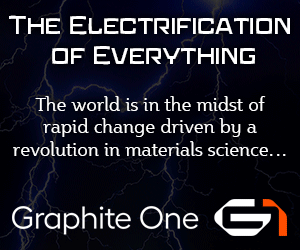
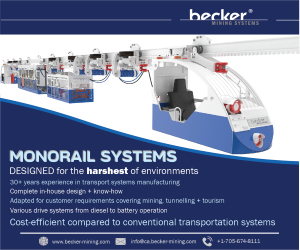
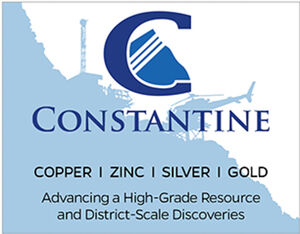


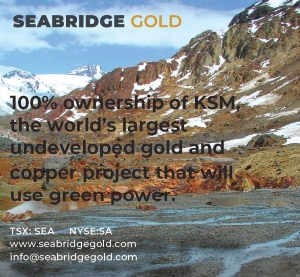

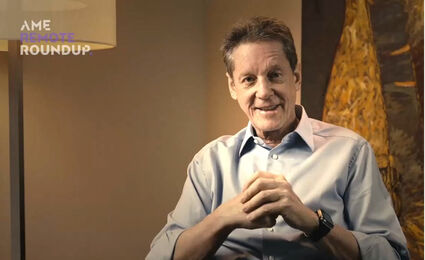

Reader Comments(0)